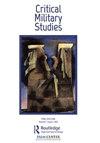一个激进的调查,被驯服了:1855年的塞瓦斯托波尔委员会
Q1 Arts and Humanities
引用次数: 0
摘要
1855年1月,英国下议院任命了一个特别委员会来调查当时驻扎在塞瓦斯托波尔前的英军的危险状况。塞瓦斯托波尔委员会最初是由激进议员约翰•阿瑟•罗巴克推动的一个激进项目,结果却比它的起源所暗示的要温和。一开始,它推翻了一个政府,并引发了传统主义者的痛苦抱怨,他们认为这是在推翻宪法。然而,罗巴克选择通过一个特别委员会来开展工作——这是一种由来已久的形式,尽管以前没有被用来调查正在进行的军事行动——这是一场经过深思熟虑的赌博,并没有完全得到回报。他牺牲了对委员会组成的控制,以获得议会的广泛批准,从而获得合法性,结果无法按照他喜欢的方向影响委员会的结论。相反,他那些更“当权派”的同事拒绝指责个人,甚至拒绝考虑政府更广泛的战略方针,而是提出了一套几乎与政府正在做的事情一模一样的建议。其结果是使罗巴克的激进的质询无效。最后,塞瓦斯托波尔委员会成立的事实比它做了什么或发现了什么更重要。本文章由计算机程序翻译,如有差异,请以英文原文为准。
A radical inquiry, tamed: the Sebastopol Committee of 1855
In January 1855, the British House of Commons appointed a Select Committee to investigate the parlous state of the British army then encamped before Sebastopol. Originally a radical project driven by the Radical MP John Arthur Roebuck, the Sebastopol Committee wound up tamer than its origins implied. At its outset, it collapsed a government, and prompted anguished complaints from traditionalists that it was overthrowing the constitution. Yet in choosing to work through a Select Committee – a long-established form, albeit one not previously used to investigate an ongoing military operation – Roebuck made a calculated gamble that did not entirely pay off. Sacrificing control over his Committee’s composition to secure wide parliamentary approval and thereby legitimacy, he wound up unable to influence its conclusions in his preferred direction. Instead, his more ‘establishment’ colleagues declined to censure individuals, refused even to consider the government’s wider strategic approach, and produced a set of recommendations almost identical to what the government was doing anyway. The effect was to neuter Roebuck’s radical inquiry. In the end, the fact that the Sebastopol Committee happened matters more than anything it did, or anything it found.
求助全文
通过发布文献求助,成功后即可免费获取论文全文。
去求助
来源期刊

Critical Military Studies
Arts and Humanities-History
CiteScore
1.90
自引率
0.00%
发文量
20
期刊介绍:
Critical Military Studies provides a rigorous, innovative platform for interdisciplinary debate on the operation of military power. It encourages the interrogation and destabilization of often taken-for-granted categories related to the military, militarism and militarization. It especially welcomes original thinking on contradictions and tensions central to the ways in which military institutions and military power work, how such tensions are reproduced within different societies and geopolitical arenas, and within and beyond academic discourse. Contributions on experiences of militarization among groups and individuals, and in hitherto underexplored, perhaps even seemingly ‘non-military’ settings are also encouraged. All submitted manuscripts are subject to initial appraisal by the Editor, and, if found suitable for further consideration, to double-blind peer review by independent, anonymous expert referees. The Journal also includes a non-peer reviewed section, Encounters, showcasing multidisciplinary forms of critique such as film and photography, and engaging with policy debates and activism.
 求助内容:
求助内容: 应助结果提醒方式:
应助结果提醒方式:


